SPECworkstation 3.0.2 Storage Benchmark
SPECworkstation benchmark is an excellent benchmark to test systems using workstation-type workloads. In this test, we only ran the Storage component, which is fifteen separate tests.
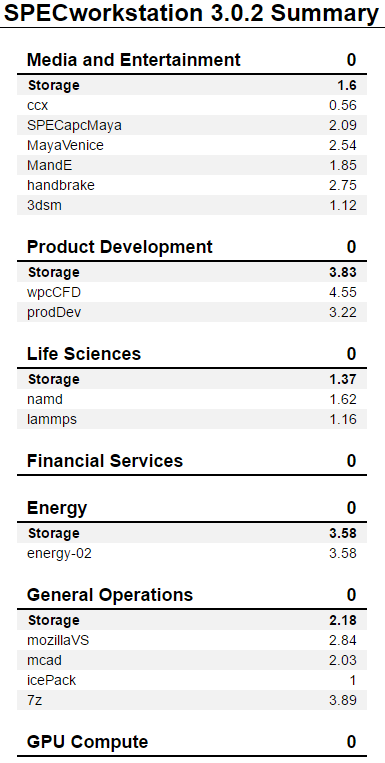
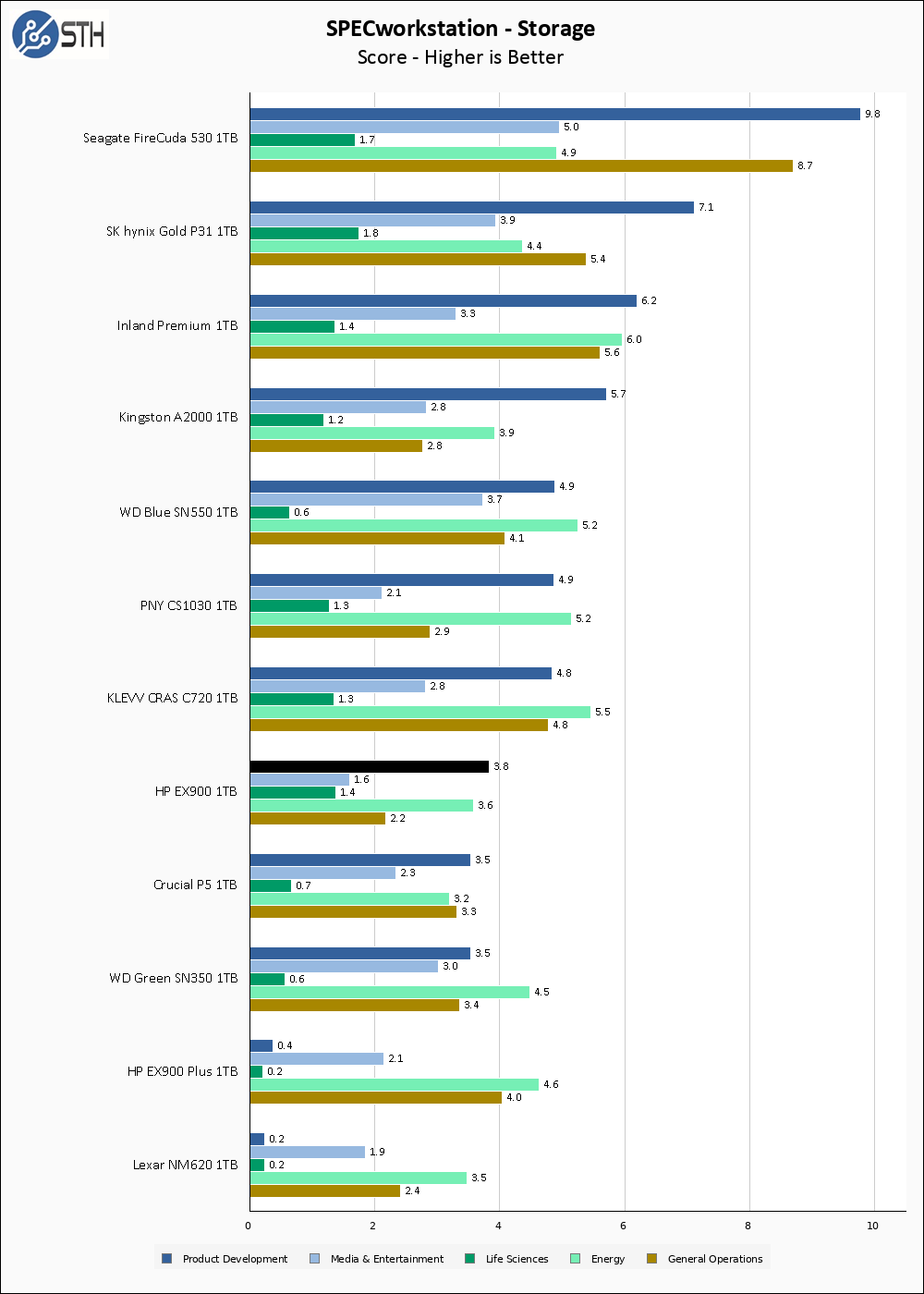
SPECworkstation performance for the HP EX900 is not bad! Performance in Product Development outpaced several drives in our test set, along with good results in Life Sciences and better-than-terrible results elsewhere. This is the only test where the EX900 put in a better result than its Plus cousin, so that is also worth taking note of.
Sustained Write Performance
This is not necessarily a benchmark, so much as trying to catch the post-cache write speed of the drive. While I am filling the drive with data to the 85% mark with 10 simultaneous write threads, I monitor the drive for the write performance to dip to the lowest steady point and grab a screenshot.
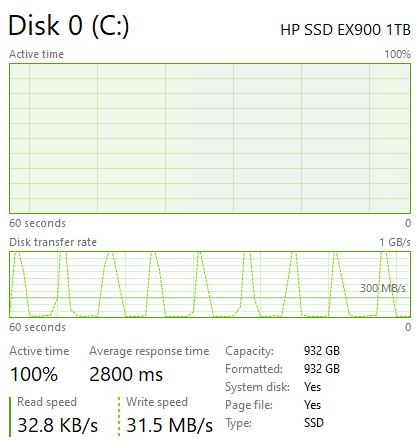
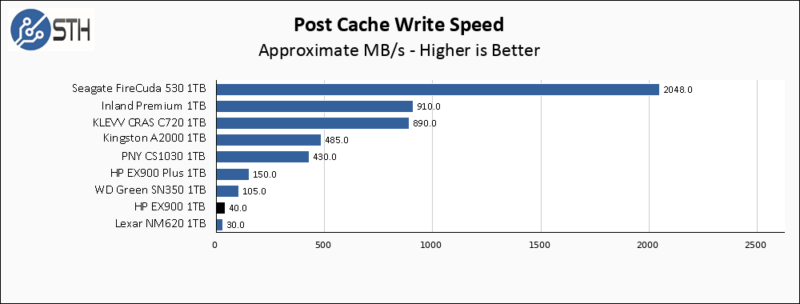
Ouch. This drive is not made for long-term continuous writing. This is almost as poor of a showing as the Lexar NM620 1TB NVMe SSD that we dubbed A Spectacular Fail.
Temperatures
We monitored the idle and maximum temperature during testing with HWMonitor to get some idea of the thermal performance and requirements of the drive. Please keep in mind that our test bench is an open frame chassis in a 22C room, but with no direct airflow. As a result, this is not representative of a cramped low airflow case and is instead intended to model temperatures of a drive ‘on its own’.

The HP EX900 should probably run cooler than it does, given its performance – these results are gathered during a write test – but at least it never approached overheating. 66C peak means this drive should be OK almost anywhere you put it.
The Plus comparison
Of course, the comparison that was always coming was how the EX900 compares to its successor drive the EX900 Plus.
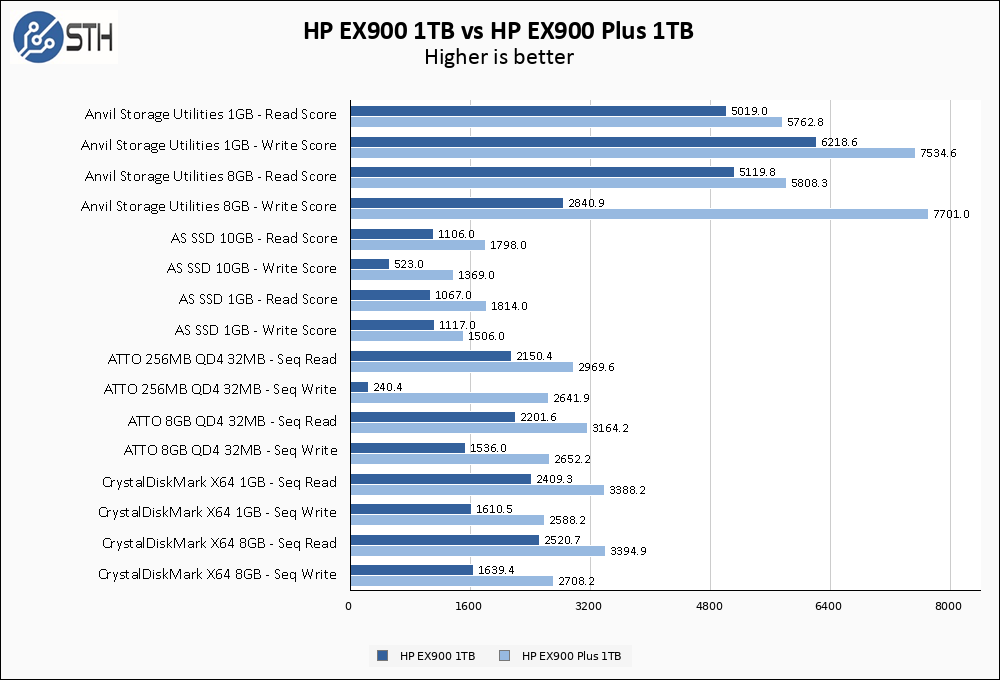
Other than SPEC workstation, which is not included in my ‘vs’ comparisons like this, the EX900 Plus is a better drive in every way. The EX900 did manage to squeak out a win in SPEC owing to how terribly the EX900 Plus performed in that benchmark, but since it lost every other test to the EX900 Plus I am willing to declare the Plus the definitive victor.
Final Words
Today the HP EX900 1TB is $95 online while the EX900 Plus is $100. The Samsung 980 is also $100 and the WD SN570 is $99; a review of the SN570 is coming soon! If $5 is the difference, then please spend the extra dollars and buy any of those better drives. All of those competitors also include 5-year warranties and most have higher rated endurance.
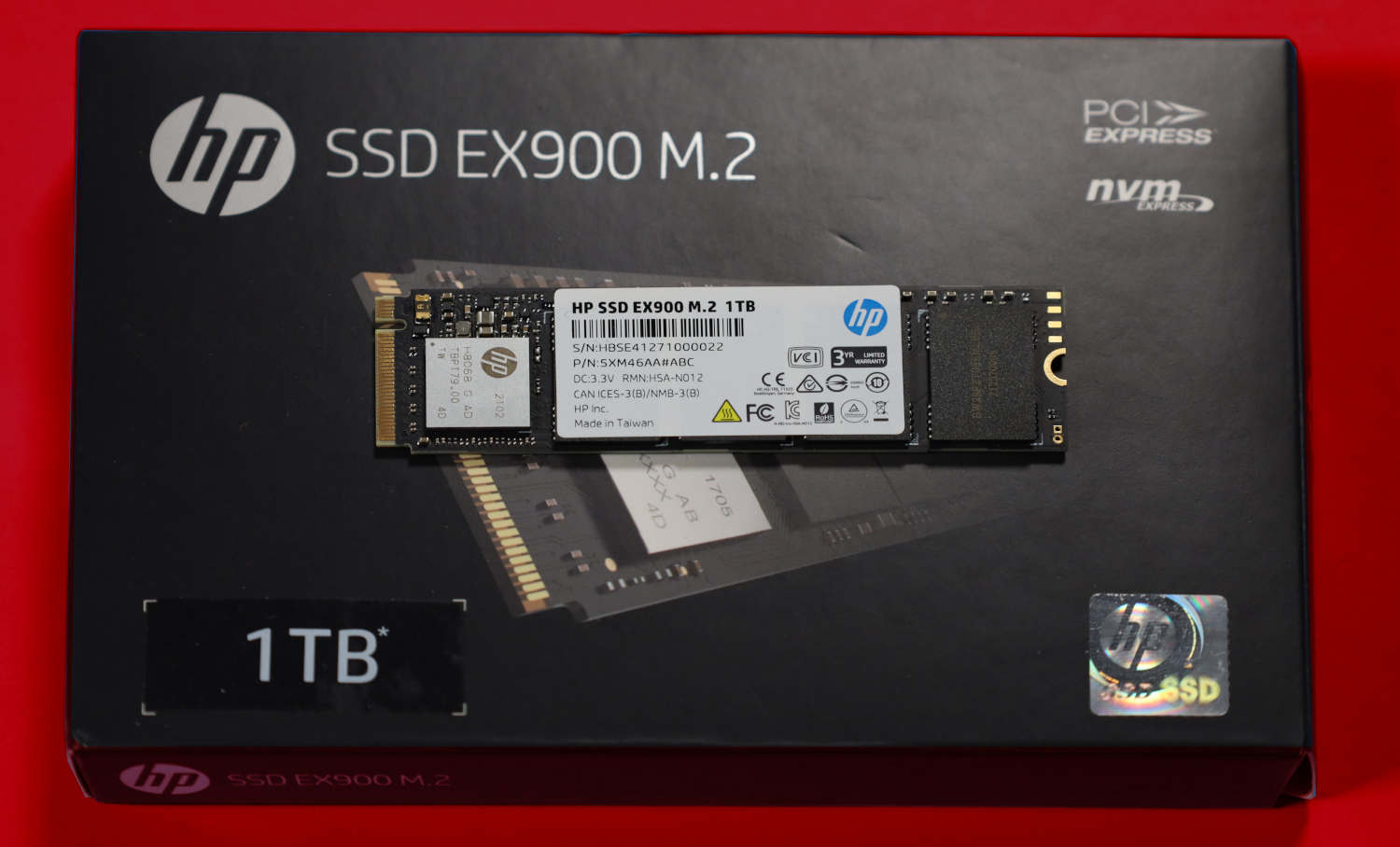
The HP EX900 line is 4+ years old. If we had ‘dog years’ for SSDs, this thing is well on its way to retirement age. I feel like most of the problems encountered in this review can be attributed to the age of the technology in this drive. If you already have an EX900 or can get a great deal on one, then it is still a decent drive for read performance even compared to other value drives in 2022. However, if you are buying today it is well worth your extra $5 to move up to a more modern drive and let the HP EX900 1TB ride off into the sunset.

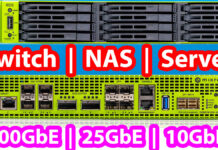
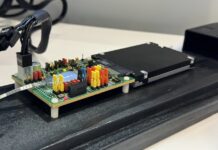
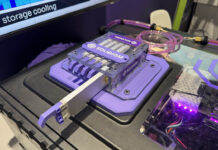
30 MBps continuous write is horrible and even for a 2018 device very disappointing. Maybe heat or firmware was a factor here? 66 degrees C surface temp means the die is at 70+
Back in the 2019-2020 time frame I had two EX920 drives die inside of a NUC when the nuc was generally idle within 3 weeks. Replaced them with a samsung Pro SSD and never had another problem.
Could have just been a fluke, but when I found out these were janky 3rd party drives with HP branding slapped on them and they had no actual support, I swore them off completely.
Replaced them with a samsung Pro SSD and never had another problem.